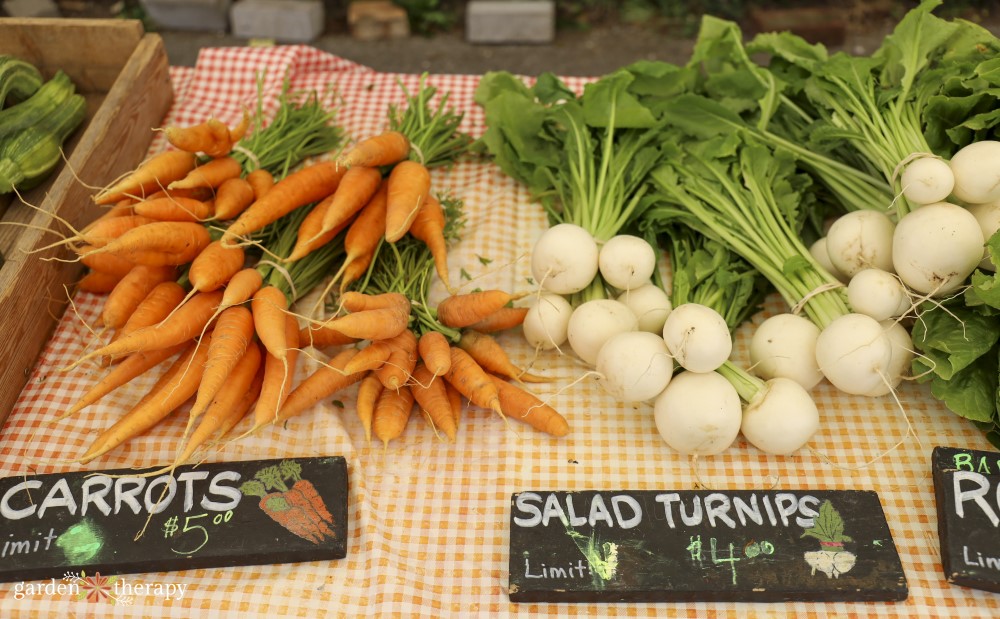Yes! You can still plant fall vegetables to harvest and eat this year! There is still time in the late summer and early fall to plant fast-growing edible plants in your vegetable garden and have them on your plate in just 15-30 days.There are many fall vegetables that you can get planted late in the season. And no, not just sprouts (but those are good too).These super nutritious garden growers are speedy enough to make something healthy and delicious for dinner in just a few weeks, even when planted from seed.
Flavourful greens like spinach, arugula, Swiss chard, and mustard grow so fast that baby greens can be ready for harvest in just three to four weeks.Root veggies like radishes are known for their zip in spice and growing speed, but baby carrots, turnips, and beets also make it from soil to table pretty fast. Tender young turnips and beet greens are delightful in salads as well.But I’m getting ahead of myself! Here are the vegetables you can plant for a fall harvest.Fall is also the time to harvest your long growers, like pumpkin and squash.
On this list, you’ll find many greens. The other thing that most people don’t consider is that you often don’t have to wait for vegetables to reach maturity to enjoy.1.For fall baby carrots, plant the seeds more densely than the instructions on the seed packet say. Harvest when the root is no more than three to four inches long, which is when baby carrots are at their sweetest and most tender.2.Pick baby beet greens when they are about four inches long (you can go smaller if you want to eat them fresh in salads or pick larger leaves for cooking).
If you want to grow baby beetroots as well, only harvest one leaf from each plant as you wait for the roots to plump up underground. When the beets reach one inch in diameter, they are ready to eat. Pickle or roast them whole, or slice them small and add to salads fresh.3.Radishes are fabulously fast-growing root vegetables. Just three weeks in the ground and they are ready to harvest and eat. Try them raw in salads and thinly-sliced in sandwiches, pickle them, or roast them in butter for a real treat.
4.Harvest baby greens when they are young and tender. The roots are ready to eat when they reach a one-inch diameter. Turnip baby greens are delicious in salads or pesto. Eat the roots fresh, steamed, or roasted.5.Harvest the Swiss chard leaves when they are three inches long to eat fresh in salads, wraps, and sandwiches, or wait about 60 days until the leaves are ten inches long and steam them in garlic and butter for a delicious side dish.Swiss chard grows well in cold climates, so it doesn’t mind the cool fall weather.
6.Spinach won’t grow well in the heat of the summer, so it is a flavour that I always look forward to in the fall when temperatures are low enough to produce tasty, tender leaves. Sow densely and harvest the leaves when they fan out. Eat fresh, or steamed with a little butter and salt.7.Kale can overwinter and become sweeter after the frost, so plant it in the fall for winter and harvest the tender baby leaves to eat before the temperature drops. Add kale to salads, wraps, sandwiches, and soups, or sauté it with a squirt of lemon or a drizzle of balsamic vinegar.
I like to plant a second round of kale mid to late summer to enjoy in the fall.8.Mustard greens are as ornamental as they are tasty, with their frilly foliage in shades of green and red. Plant densely and harvest the young, tender leaves. These spicy greens will add a punch to fresh dishes.9.Sow a mix of lettuce seeds densely for a cut-and-come-again salad garden. Snip micro greens as soon as true leaves have formed if you like, and about a week after that, you’ll have baby lettuce leaves to eat up.
This lettuce is already ready to eat after a few weeks.10.Plant and harvest baby arugula the same way you do lettuce. Its spicy, nutty flavour pairs perfectly with warm roasted veggies topped with Parmesan and olive oil. For a fresh kick, add it to a tomato-heavy salad.What vegetables are in season in the fall? It’s always a good idea to stock up on vegetables when they’re in season, and to enjoy them while they’re fresh and taste the best. In the fall, some seasonal vegetables include carrots, turnips, parsnips, beets, broccoli, cauliflower, Brussel sprouts, cabbage, celery, eggplant, zucchini, chard, kale, lettuce, spinach, green beans, onions, potatoes, radishes, peppers, pumpkins, squash, and wild mushrooms.
Should I sow my fall vegetables directly into the ground? Yes! These speedy vegetables all like cooler temperatures and will do best directly sown. Starting them indoors would just slow you down. When can I plant fall vegetables? If you really want to plan ahead, you can begin to plant fall vegetables when there’s about a month of hot weather left. Most fall vegetables (like greens) prefer cooler temperatures, but warm temperatures will encourage the seeds to sprout, while they will reach maturity in the cooler temperatures they prefer.
With these fast-growing fall veggies, you can still feast on garden-fresh produce for months to come.
